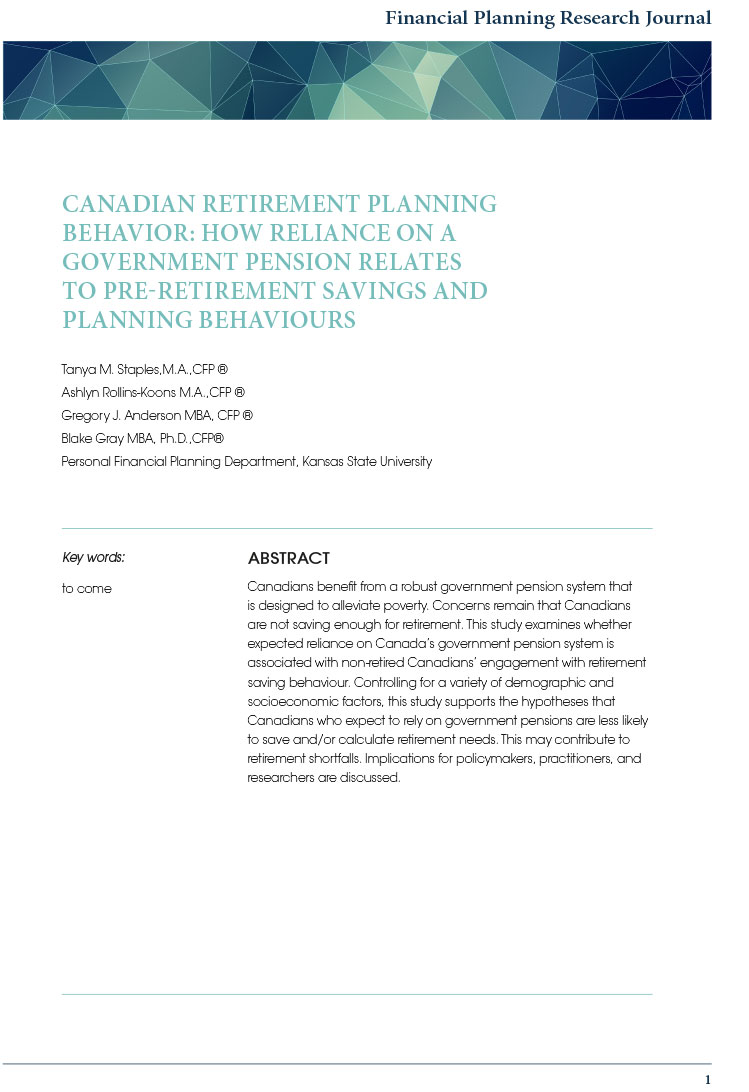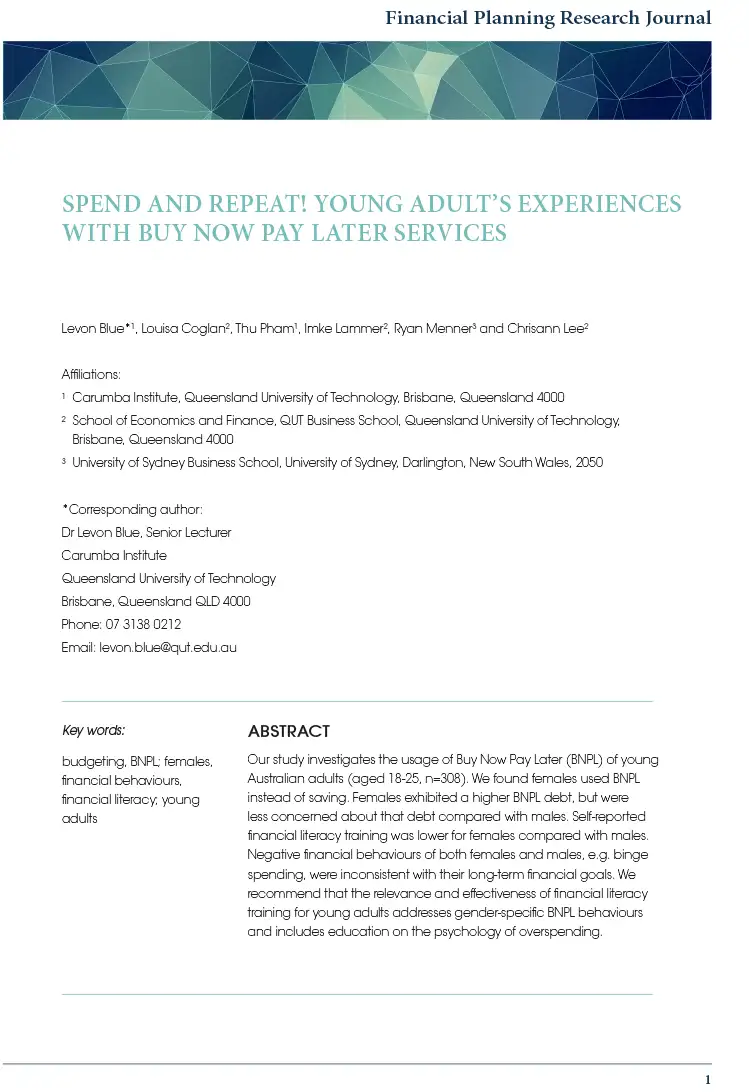Financial Planning Research Journal
In 2015, we collaborated with Griffith Business School to launch the Financial Planning Research Journal, Australia’s first academic journal dedicated to financial planning.
This publication is very important for the financial planning profession. It provides a focal point for research around financial planning that is used to inform debate and policy, and ultimately raise standards across the profession.
Published online via the Sciendo website, the journal incorporates peer-reviewed academic articles covering the full spectrum of the financial planning profession, with Griffith University and Western Sydney University providing the editorial services.
FPRJ EDITORIAL BOARD
- Professor Mark Brimble as Co-Editor and Section Editor, Griffith University
- Associate Professor Michelle Cull, Co-Editors, Western Sydney University
- Assistant Professor Bomikazi Zeka – University of Canberra, Australia
- Assistant Professor Chet R. Bennetts – The American College of Financial Services, USA
- Professor Dale Pinto – Curtin University, Australia
- Associate Professor Daniel Richards – York University, Canada
- Senior Lecturer Elisabeth Sinnewe – Queensland University of Technology (QUT), Australia
- Associate Professor Kirsten MacDonald – Griffith University, Australia
- Assistant Professor Megan McCoy – Kansas State University, USA
- Professor Tanya M. Staples – Conestoga College, Canada
- Louise Trevaskis, Financial Advice Association Australia (FAAA)

Current issue:
Volume 9 Issue 1
Article 1
Authors: Tanya M. Staples, Ashlyn Rollins-Koons, Gregory J. Anderson, Black Gray

Current issue:
Volume 9 Issue 1
Article 2
Article 2 – Spend and repeat! Young adult’s experiences with buy now pay later services.
Authors – Levon Blue, Louisa Coglan, Thu Pham, Imke Lammer, Ryan Menner, Chrisann Lee